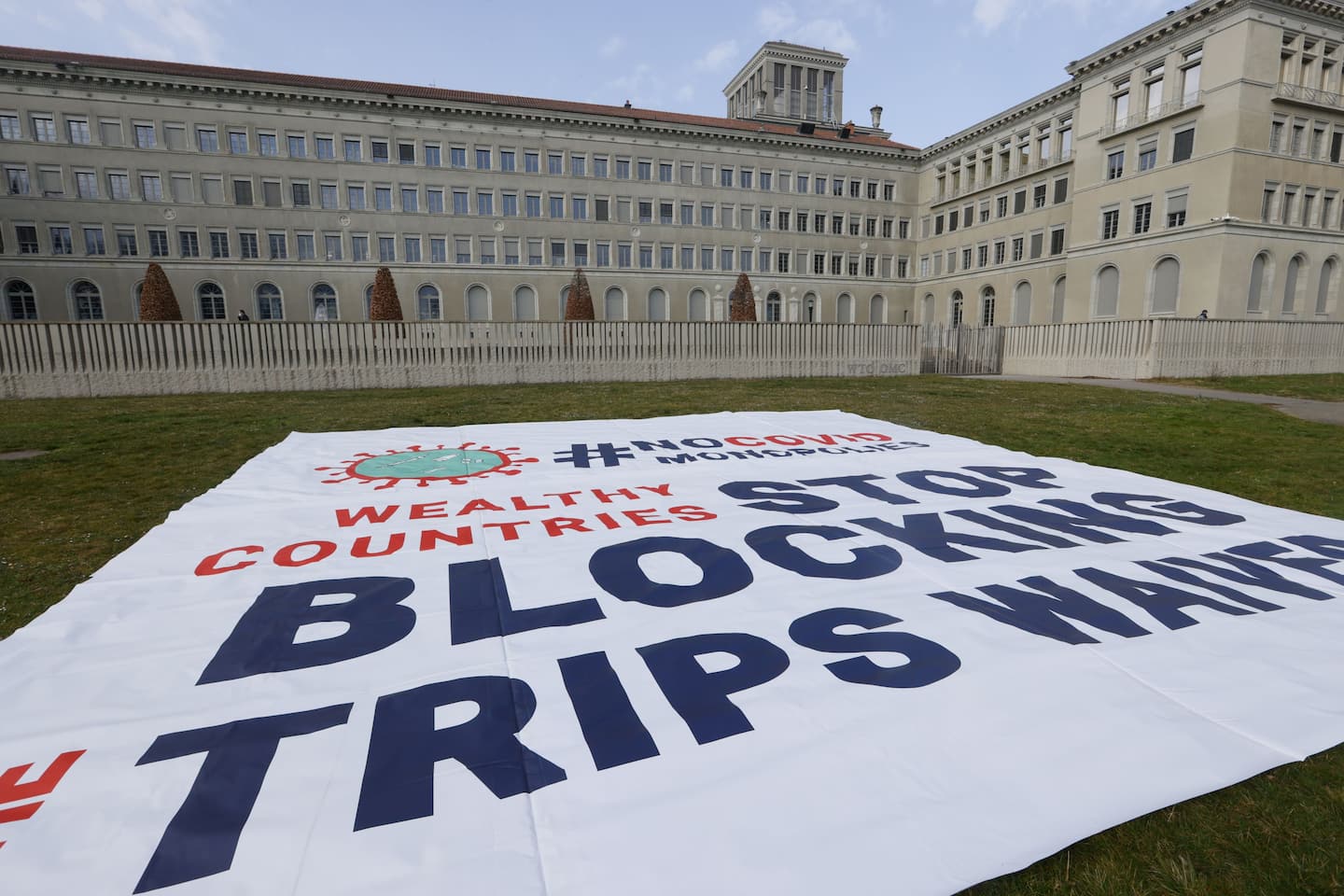WHO head pushes for waiver of some intellectual property rights for coronavirus vaccines, in bid to broaden access

“We need to be on a war footing, and it’s important to be clear about what is needed,” he wrote.
In recent days Tedros has made his most pointed plea yet for the waiver of some patents — the intellectual property protections behind vaccine formulations — for coronavirus vaccines and medical supplies. The 164-member World Trade Organization is deadlocked over a proposal to do so put forward by India and South Africa on behalf of countries with little or no vaccine doses. The idea has been roundly opposed by the United States and largely other western countries, where major pharmaceutical companies are based.
“If a temporary waiver to patents cannot be issued now, during these unprecedented times, when will be the right time?” Tedros tweeted Thursday. “Solidarity is the only way out.”
The WTO is set to meet virtually next week, following a deadlock over the matter in meetings on Monday and Tuesday. The WTO works via consensus, meaning that all member-nations must agree on any measure.
Though the development of the coronavirus vaccines has happened at an extraordinarily rapid pace, their production and rollout is still at nascent stages. The vast majority of the 225 million coronavirus vaccine doses so far administered have been in wealthy, western countries, according to Tedros. Public health experts have warned that the longer the virus circulates globally among unvaccinated populations, the greater chance there is of more easily transmissible variants developing.
Supporters of the waivers want to trigger an emergency license, laid out in the WTO’s Agreement on Trade-Related Aspects of Intellectual Property Rights (TRIPs), which would temporarily suspend the intellectual property rights for making vaccines and related medical supplies. They say this is necessary because the rest of the world cannot continue to wait for the lifesaving shots.
A spokesperson for U.S. Trade Representative Adam Hodge said in an email last week that the Biden administration “is evaluating the efficacy of this specific proposal by its true potential to save lives.”
Opponents of the WHO proposal say that waiving intellectual property rights in this case would diminish the financial incentive for companies to invest the time and money in future research and development.
Andrew Widger, a spokesperson for Pfizer, one of the U.S. producers of a coronavirus vaccine, said in an email that the company “will consider all viable options” to ensure that drugs against covid-19 are accessible, but he said that calls for waiving patents disregards “the specific circumstances of each situation, each product and each country.”
Representatives for Moderna and AstraZeneca, two other major western companies producing coronavirus vaccines, did not respond to requests for comment.
Mustaqeem De Gama, an intellectual property expert and South Africa’s WTO representative, told The Washington Post he disagreed with the argument that waiving intellectual property rights would diminish the incentive for future research.
During the HIV/AIDS crisis, the WTO agreed on a licensing model that expanded affordable access to lifesaving medicines for patients, particularly in hard-hit sub-Saharan Africa, and included in it mechanisms for compensating companies. The fast-paced development of the current coronavirus vaccines — which involved companies taking very expensive research risks — was also bolstered by funding from governments like the United States and Britain, he said.
Jonas Salk, who developed a vaccine against polio in the 1950s, famously refused to patent the vaccine to ensure it remained widely available.
“Waiving patents temporarily won’t mean innovators miss out,” Tedros wrote in the Guardian on Friday. “Like during the HIV crisis or in a war, companies will be paid royalties for the products they manufacture.”
He continued, “It’s also important for low- and middle-income countries to build on their domestic manufacturing capacity. Just as the yellow fever vaccine is now produced in Dakar, Senegal, an investment in manufacturing could see the same done with coronavirus vaccines.”
Taking a different approach, China and Russia both developed their own vaccines that they have been distributing and selling at discounted rates to countries in need or in their spheres of influence, a practice that’s come to be called “vaccine diplomacy.”
Krishna Udayakumar, associate director for innovation at the Duke Global Health Institute, said he thought it was unlikely that the Biden administration would support the WTO waiver in a move against intellectual property rights.
But he said the debate was also “more symbolic than practical” as “waiving patent rights is unlikely to make a material difference in vaccine access in the next six to twelve months. What we really need is a stronger effort to develop vaccine manufacturing and transfer knowledge and know how, which is much deeper than patents. This is another interest where I think not engaging in a productive way makes the United States seem resistant to supporting the needs of the developing world.”






